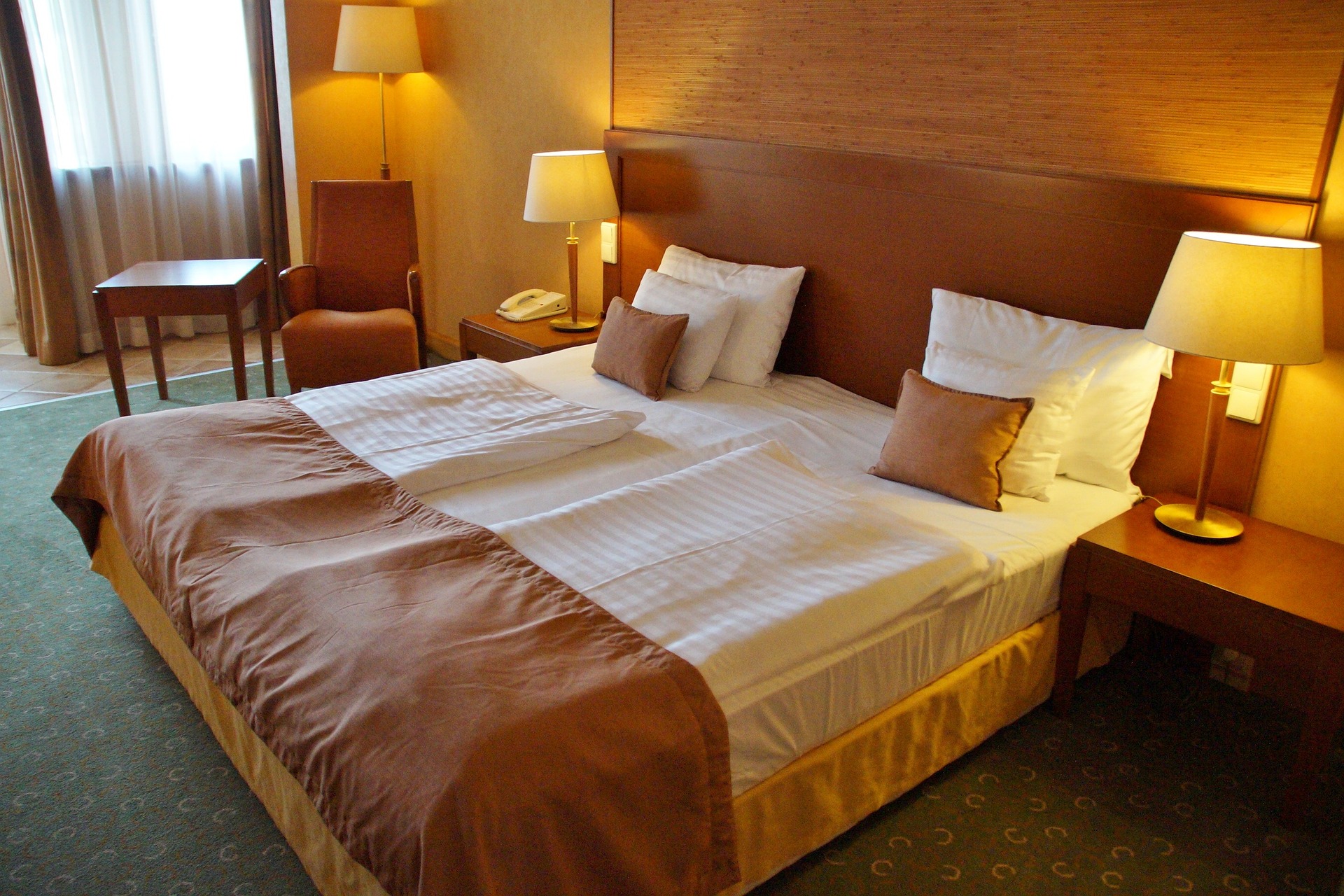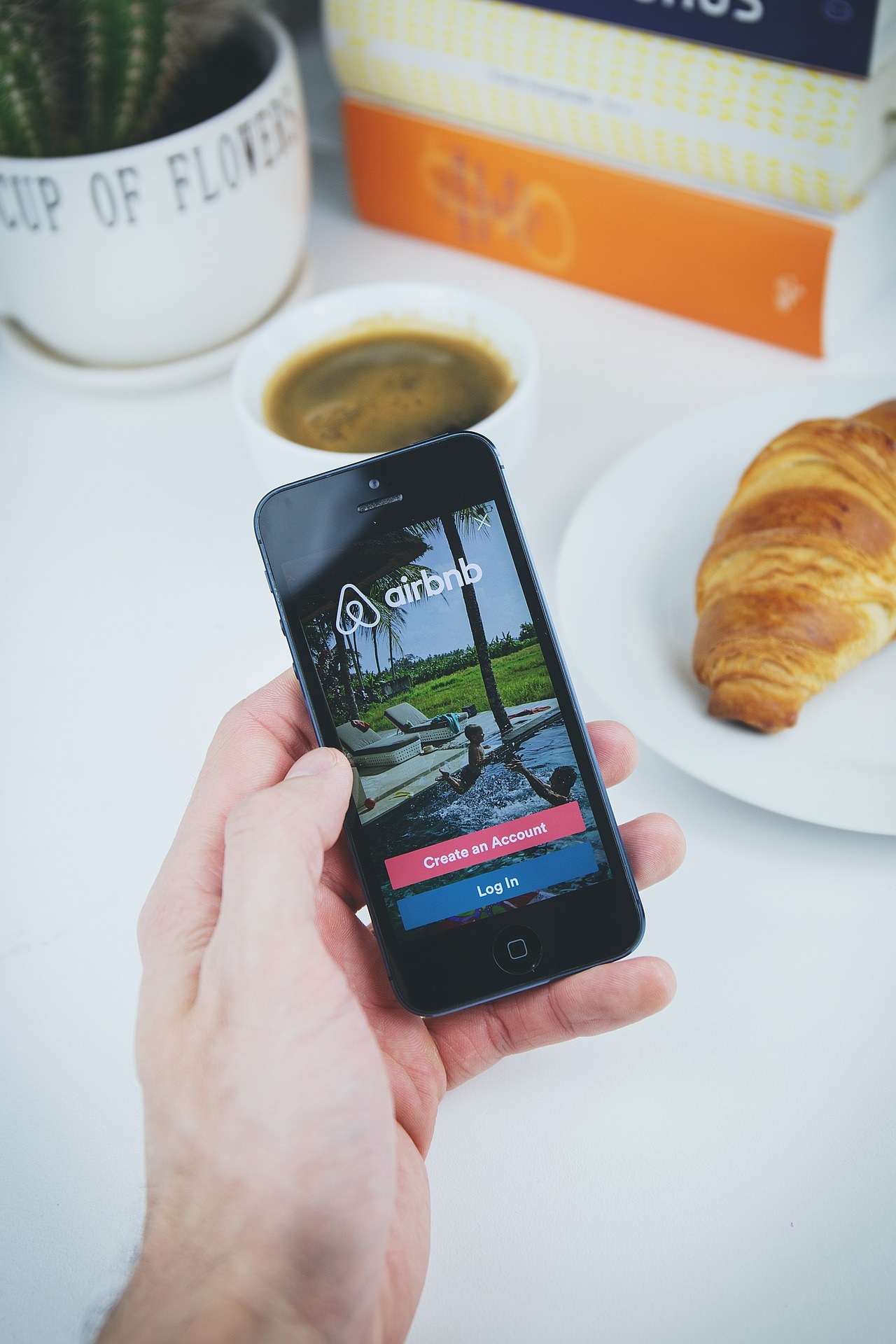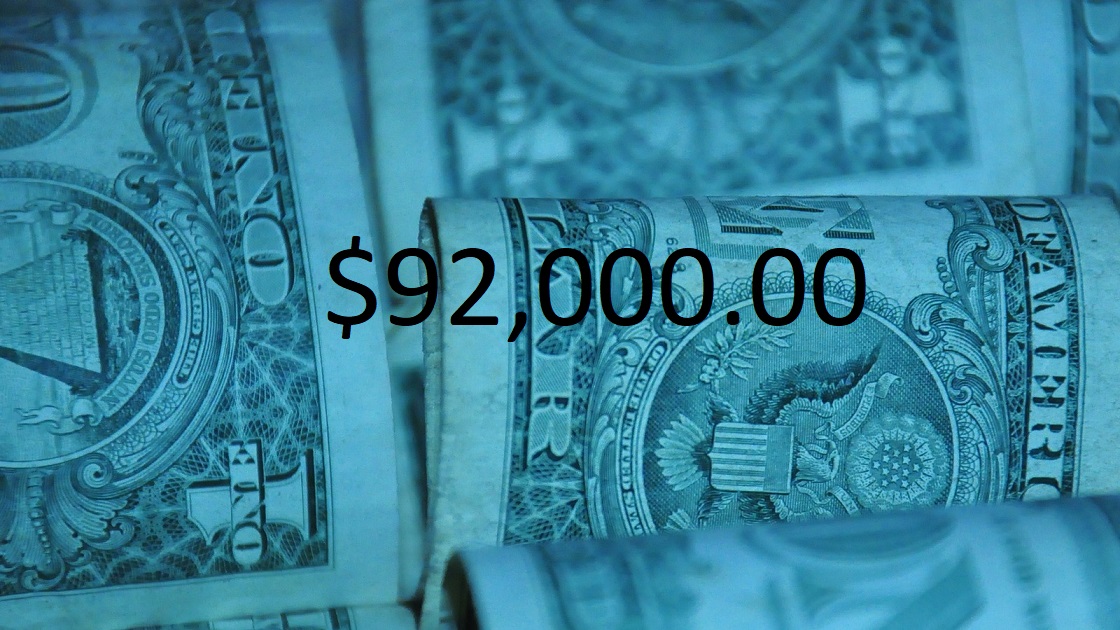Mr. John Smith is visiting several locales in Pennsylvania: in eastern Montgomery County, in Lehigh County, and in the City of Philadelphia. He’s looking at the option of staying in a nice hotel in each of the three locales. Or, he might decide to stay in a comfy home in each of the three counties.
Read:
Montgomery County, Lehigh County, and the City and County of Philadelphia all welcome people like Mr. Smith to stay in their communities.
Mr. Smith is somewhat frugal. He’s looking for a good deal to save money.
Assume for a moment that all of the lodging options have the same cost – $100.00 per night. In a hotel or in a private residence.
Each of the options in Lehigh County – staying in a nice hotel or staying in a comfy home – have the same exact cost – $100.00 for the room plus the same exact hotel occupancy taxes for temporary stays in Lehigh County. The same is true in the City and County of Philadelphia – the cost to stay in a nice hotel or a comfortable house are identical in costs.
But in Montgomery County, Mr. Smith might be able to get a better deal.
He can likely cut his costs by 4% by staying in a comfy home.
If he stays in a local hotel in Abington Township, for example, Mr. Smith will be charged a 4% Hotel Room Rental Tax levied by Montgomery County. The hotel collects the local hotel occupancy tax and then remits it to Montgomery County government.
Read:
The Tookany Valley Chronicles: Hotel Occupancy Taxes 102
The Montgomery County Hotel Room Rental Tax
But if Mr. Smith stays in a comfy home in Abington Township that is rented through Airbnb, for example, he is likely not getting charged the 4% Hotel Room Rental Tax enacted by Montgomery County.
Why?
There appear to be several reasons:
1. There is a difference in opinions regarding whether the Montgomery County Hotel Room Rental Tax applies to just facilities operating as hotels, motels, and inns or if the hotel occupancy tax applies to all short-term, temporary housing for transients paying for accommodations in Montgomery County.
2. Airbnb does not have a “voluntary” agreement with Montgomery County to charge, collect, and remit the 4% Hotel Room Rental Tax levied by Montgomery County – a tax that has been in place since 1983. Airbnb was founded in 2008; it is not certain when Airbnb started to facilitate the rental of rooms and homes in Montgomery County.
3. Without a “voluntary” tax collection agreement in force, the individual Airbnb hosts are responsible for charging, collecting, and remitting all required taxes. It appears that most of the Airbnb hosts “don’t know” that they may have to charge, collect, and remit the Montgomery County Hotel Room Rental Tax.
Lehigh County and the City and County of Philadelphia (as well as several other counties in Pennsylvania) take the view that whether a transient visitor is staying in an accommodation in a building designed for temporary lodging (a hotel or motel, for example) or in a building designed for a single family (a single-family, detached house, for example), hotel occupancy taxes must be charged, collected, and remitted to the affected governmental entities.
That view has not been enforced in Montgomery County.

People visiting communities throughout the world have the option to stay in a variety of accommodations – ranging from hotels and motels to private homes. Airbnb is one of the businesses that operates a platform that allows individuals and families to rent out a room or an entire home to people visiting their communities. According to Airbnb, there are 15,300 Airbnb hosts in Montgomery County.

Please note that hotel guests in Montgomery County pay several different taxes, not just one tax. In addition to the Montgomery County Hotel Room Rental Tax, there is also a hotel occupancy tax levied by the Commonwealth of Pennsylvania, for example.
The Commonwealth of Pennsylvania entered into a confidential agreement with Airbnb in 2016 in which Airbnb agreed to charge, collect, and remit the 6% hotel occupancy tax levied by the Commonwealth as well as an additional 1% hotel occupancy tax collected by the Commonwealth on behalf of Allegheny County and the City and County of Philadelphia.
Read:
One might also wonder why the Pennsylvania Department of Revenue did not put together an agreement with Airbnb that would have encompassed all jurisdictions, including Montgomery County, that assess a hotel occupancy tax. With such an agreement, Airbnb could be collecting and remitting all hotel occupancy taxes within Pennsylvania.
“Under Pennsylvania law, the Department [of Revenue] is responsible for administering state taxes, including the hotel occupancy tax,” explained Mr. Jeffrey Johnson, Communications Director of the Pennsylvania Department of Revenue. “However, there are other taxes administered at the local level that are outside of the department’s jurisdiction.”
You can view further details regarding the hotel occupancy tax policies of the Pennsylvania Department of Revenue by clicking here.
An important point noted by Mr. Johnson: “The Department [of Revenue] never waives its right to audit.”
The Pennsylvania Department of Revenue explicitly states that “Under Pennsylvania law, anyone who rents out their property to provide lodging for less than 30 days to the same person must collect and remit the Pennsylvania hotel occupancy tax to the Department of Revenue. In addition to hotels, the tax applies to rentals of rooms, apartments and houses arranged through online or third-party brokers.”
That same policy has not been enforced by Montgomery County as it relates to short-term lodging available through non-hotel facilities – like single-family detached houses.

Airbnb explained that it cannot collect local taxes – like the Montgomery County Hotel Room Rental Tax – unless there is a voluntary tax collection agreement between Airbnb and the affected governmental entity, like Montgomery County.
“We are having conversations with Montgomery County to enter into a voluntary tax collection agreement with the County,” explained Ms. Liz DeBold Fusco, Northeast Press Secretary for Airbnb. “We want to have an agreement with Montgomery County.”
(Please note that Montgomery County indicated that it is “not having conversations” with Airbnb. You can read more on this by clicking here.)
Without a tax collection agreement, Airbnb indicated that the Airbnb hosts are the ones responsible for charging, collecting, and remitting the appropriate local taxes to the affected governmental entities.
The dilemma is that Airbnb hosts are not allowed to add a line item for local taxes to the invoice for their guests, according to Airbnb.
“Yes, that’s correct. Only Airbnb can do that – and we need a VCA [voluntary tax collection agreement] in order to do so,” stated Ms. DeBold Fusco of Airbnb.
As such, there does not appear to a way for a guest to know if the 4% Montgomery County Hotel Room Rental Tax is being charged or not. In many cases, where the Airbnb hosts “charge” the local hotel occupancy tax, that “charge” appears nowhere on any of the invoices to guests. Instead, the “charge” is included in the room rate.
How then does an Airbnb host charge the Montgomery County Hotel Room Rental Tax?
Airbnb does not offer any specific guidelines regarding Montgomery County hotel occupancy taxes to the 15,300 Airbnb hosts that Airbnb stated it has in Montgomery County.
Airbnb, however, does offer general answers hotel occupancy taxes on the Airbnb website:
What is occupancy tax? Do I need to collect or pay it?
Thus, it is possible that the 15,300 Airbnb hosts in Montgomery County are charging the 4% Montgomery County Hotel Room Rental Tax to their guests, collecting that tax, and then remitting the revenue to Montgomery County.
Possible, but unlikely.
Currently, Montgomery County has no way to know how many – if none, if some, or if all – of the Airbnb hosts in Montgomery County are charging, collecting, and remitting the Montgomery County Hotel Room Rental Tax.
“There’s no way to answer that accurately,” explained Mr. John Corcoran, Director of Communications for Montgomery County. “We don’t know if the 15,300 figure is accurate and there is no way to go through the list of property owners that have been paying and accurately discern which ones are Airbnb hosts.”
“It’s likely that only a small number of Airbnb hosts have been paying the tax,” Mr. Corcoran continued. “It’s likely that some, if not most, aren’t aware of the tax. Under the new law, Airbnb and other sites that get a portion of whatever the renter is paying are required to collect and remit the tax and it will be possible to audit those records.”
Had every Airbnb host in Montgomery County charged their guests the Montgomery County Hotel Room Rental Tax, collected the tax revenue, and remitted the tax revenue to Montgomery County – just like every Airbnb host (through Airbnb) charges, collects, and remits the Pennsylvania Hotel Occupancy Tax – Montgomery County government would have received approximately $92,000.00 in tax revenue in 2018.
Please note that the amount of $92,000.00 is arrived at by multiplying 4% (the tax rate for the Montgomery County Hotel Room Rental Tax) by the $2.3 million in revenue that Airbnb has publicly stated was generated by Airbnb hosts renting rooms and homes in Montgomery County in 2018.
The amount of tax revenue not remitted from Airbnb hosts for previous years is uncertain.
Also uncertain are the amounts of tax revenue not remitted by hosts using other third-party and online platforms (for example: HomeAway and its division VRBO – both part of Expedia Group) in 2018 or in previous years.
Read:
Leaders within the hospitality industry have seen the need for more compliance by Airbnb and the Airbnb hosts in Pennsylvania.
“We respect the rights of homeowners to occasionally rent a room in their house,” said Mr. John Longstreet, President and CEO of the Pennsylvania Restaurant & Lodging Association. “However, there is a clear difference between those who truly operate in the spirit of the shared economy and the large and growing number of full-time corporate landlords and hoteliers who use Airbnb to run businesses out of residential units. These bad actors are using Airbnb to dodge regulations that protect the safety and security of consumers, and in doing so they degrade the quality of life for residents in our communities.”
Read:
Do you have questions about local history? A street name? A building?
Your questions may be used in a future news column.
Contact Richard McDonough at tookanyvalleychronicles@gmail.com.
© 2019 Richard McDonough

